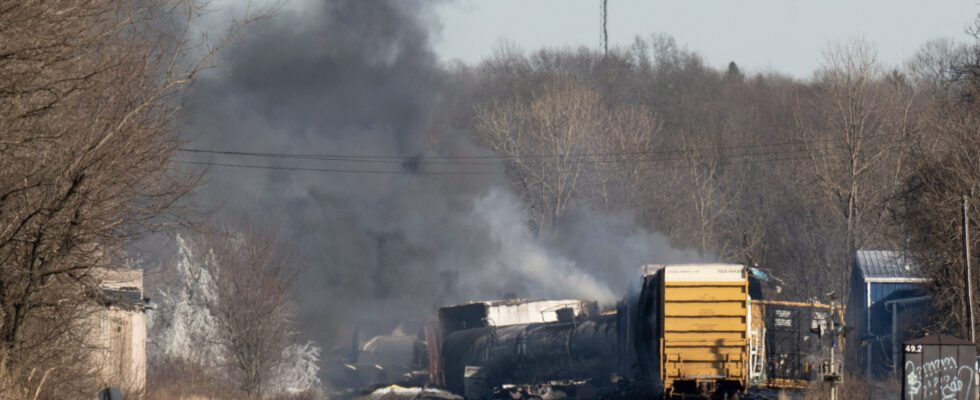The Biden administration wants to be reassuring. Two weeks after a train carrying chemicals was derailed near East Palestine in Ohio, United States, the head of the United States Environmental Protection Agency (EPA), Michael Regan, has returned on the spot claiming that no traces of vinyl chloride or hydrogen chloride had been detected after the examination of more than 480 houses, and that the water was tested and re-tested “to ensure that these inhabitants are protected”.
This is one of the deadliest environmental emergencies in decades and no one is talking about it
Thread ⬇️ pic.twitter.com/rIKX0nmAM1
—Sophia Kianni (@SophiaKianni) February 13, 2023
Toxic fumes released into the air
On February 3, the accident had caused a huge fire, and the evacuation of several thousand people. The train was carrying vinyl chloride, a carcinogenic and highly flammable chemical used in plastic manufacturing. The railway authorities then proceeded with “controlled” releases of vinyl chloride “to avoid a possible explosion” according to the office of the governor of Ohio, releasing toxic fumes into the air. Since then, an investigation has been launched into the causes of the derailment and the case has continued to gain momentum as residents have expressed their concern.
Living species found dead
Some residents have reported to media that they have had various symptoms, including headaches, and said they fear they will end up with cancer in a few years. Some 3,500 fish have also died in the surrounding waterways, according to the local natural resources agency, and other living species are said to be threatened.
Based on tests, authorities said the air was “safe” and that municipal system water tests had detected no pollutants. However, they advise people using water from private wells to have it tested and to continue drinking bottled water while awaiting the results. The inhabitants, who have been authorized to return to their homes, display their mistrust.
Contamination that remains in the region?
Because in reality, 15 days after the accident, it is still complex to draw up the ecological consequences. The American NGO Natural Resources Defense Council, quoted by TF1, reports that officials have asked residents to “open their windows and wipe down all their surfaces” upon their return. “This means that they know that there is still contamination in the region”, analyzes the head of the organization, Erik D. Olson.
For the latter, particles of these chemicals were able to infiltrate wells and sources of drinking water. This suggests that the ecological consequences can be measured in the medium or long term.
